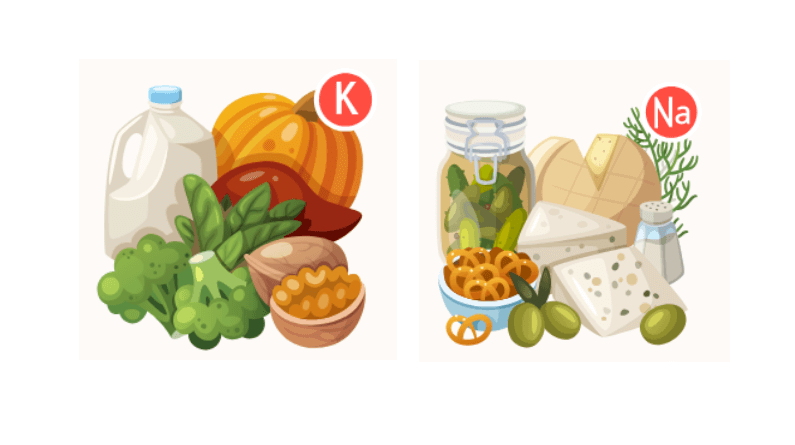The Delicate Balance: Sodium and Potassium in the Body
Sodium and potassium are two essential elements that play a crucial role in maintaining various bodily functions. The balance between these two elements is vital for maintaining fluid and blood volume, nerve function, and muscle contraction.
Sodium in the Body
Sodium helps:
– Regulate nerve function and muscle contraction
– Maintain fluid balance in the body
– Enable kidneys to function properly
However, excessive sodium in the body can lead to:
– High blood pressure
– Kidney damage
The recommended daily intake of sodium is about 1 teaspoon of table salt for a healthy adult.
Potassium in the Body
Potassium helps:
– Regulate nerve function and muscle contraction
– Maintain a regular heartbeat
– Facilitate nutrient transport into cells and waste removal
– Counterbalance the effects of excess sodium
Potassium-rich foods include:
– Green leafy vegetables
– Citrus fruits like oranges
– Grapes and other vines
– Root vegetables like carrots and potatoes
The Interplay between Sodium and Potassium
Sodium and potassium work together to:
– Regulate blood pressure
– Maintain bone health
– Balance electrolytes in the blood
Potassium is essential for cellular functions, while sodium plays a crucial role in extracellular fluid.
The Importance of Balance
A high-sodium, low-potassium diet can lead to:
– High blood pressure
– Cardiovascular disease
– Osteoporosis
On the other hand, a diet rich in potassium can help:
– Maintain healthy blood pressure
– Reduce the risk of cardiovascular disease
Evolutionary Perspective
Humans evolved on a plant-based diet, which was rich in potassium. This led to adaptations that enabled the body to handle high potassium intake. However, this also means that the body has a tendency to store excess sodium, which can be detrimental to health.
Conclusion
Maintaining a delicate balance between sodium and potassium is crucial for overall health. By understanding the roles of these essential elements and making informed dietary choices, we can reduce the risk of chronic diseases and promote well-being.
References
https://www.active.com/nutrition/articles/why-sodium-potassium-balance-is-critical-for-better-hydration
https://pubmed.ncbi.nlm.nih.gov/16772638/
https://www.sciencedirect.com/science/article/abs/pii/S089990071630137X
https://www.health.harvard.edu/staying-healthy/potassium_and_sodium_out_of_balance
https://www.cdc.gov/salt/potassium.htm

